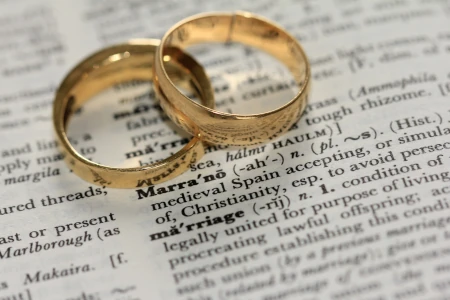When it comes to matters of the heart, the law can sometimes find its way into the picture. Alienation of affection cases are a prime example, where people seek legal recourse against a third party for allegedly interfering in their marriage.
These cases are based on the belief that someone else’s actions caused a once-happy marriage to break down. In this article, we’ll explore the intricacies of alienation of affection cases and discuss their success rates.
How Successful Are Alienation of Affection Cases?
Alienation of affection cases can be complex and challenging to prove. The success of these cases depends on various factors, including jurisdiction, evidence, and the interpretation of the law by the judge.
While there have been instances where plaintiffs have achieved favorable outcomes, the overall success rate of alienation of affection cases can vary widely.
Factors That Influence the Success of Alienation of Affection Cases
Strength of Evidence: The success of an alienation of affection case heavily relies on the evidence presented. Plaintiffs need to provide substantial proof that a third party’s actions resulted in the alienation of affection and the deterioration of the marital relationship.
Evidence can include text messages, emails, photographs, witness testimonies, and other relevant documentation.
Jurisdiction: Alienation of affection laws vary from state to state. Some states recognize this cause of action, while others have abolished it. Understanding the legal framework and requirements of the jurisdiction where the case is filed is important.
If you’re in North Carolina, for example, alienation of affection is recognized as a cause of action. Consult with a qualified attorney to understand the specific laws in your jurisdiction.
Intent: Proving that the third party intentionally interfered in the marital relationship is crucial for a successful alienation of affection case. It’s important to demonstrate that the defendant knowingly engaged in actions that caused harm to the marriage.
Financial Damages: In some cases, successful plaintiffs may be awarded monetary compensation for the emotional distress and harm caused by the alienation of affection. The severity of the damages can impact the case’s overall success.
Common Misconceptions about Alienation of Affection Cases
Alienation of Affection vs. No-Fault Divorce: It’s important to differentiate between alienation of affection cases and no-fault divorce. No-fault divorce allows couples to end their marriage without proving fault or placing blame on one party.
Alienation of affection cases, on the other hand, involve a third party allegedly responsible for the breakdown of the marriage.
Proof of Sexual Relations: Contrary to popular belief, proving sexual relations between the defendant and the spouse is not a requirement for a successful alienation of affection case. While evidence of an affair can strengthen the plaintiff’s claim, it is not the sole determining factor.
In Conclusion
Alienation of affection cases can be complex legal matters. Their success depends on various factors, including the strength of evidence, jurisdiction-specific laws, and the third party’s intent.
Understanding the legal landscape and seeking professional legal advice is crucial when considering an alienation of affection case. While there have been successful outcomes in these cases, it’s important to approach them with realistic expectations and a thorough understanding of the legal requirements.

Carolyn Bellof
Carolyn Bellof is a Certified Family Law Specialist in North Carolina. She brings empathy and a personal understanding of loss and resilience to her clients, ensuring their legal needs are protected during emotionally challenging family law proceedings.
Has your marriage been affected by a third party? Schedule a consultation today and find out if you have a strong alienation of affection case. Take the first step towards seeking justice and protecting your future.
FAQs about Alienation of Affection Cases
1. Are alienation of affection cases recognized in all states?
No, not all states recognize alienation of affection as a cause of action. Laws regarding alienation of affection vary from state to state. It’s essential to understand the laws specific to your jurisdiction.
2. What is the time limit for filing an alienation of affection case?
The time limit for filing an alienation of affection case varies depending on the jurisdiction. It’s crucial to consult with a qualified attorney to determine the specific deadline applicable in your area.
3. Can I sue my spouse for alienation of affection?
In most jurisdictions, spouses cannot be sued for alienation of affection. The cause of action is typically limited to third parties allegedly interfering in the marital relationship.
4. What damages can I recover in an alienation of affection case?
Successful plaintiffs in alienation of affection cases may be awarded damages for emotional distress, loss of consortium, and other related harms. The specific damages available vary depending on the jurisdiction.
5. Are alienation of affection cases common?
Alienation of affection cases are relatively rare compared to other types of legal disputes. However, they continue to be pursued in certain jurisdictions where this cause of action is recognized.
6. Can an alienation of affection case be settled out of court?
Like many other legal disputes, alienation of affection cases can be settled out of court through negotiations between the parties involved. However, the case may proceed to trial if a settlement cannot be reached.

















